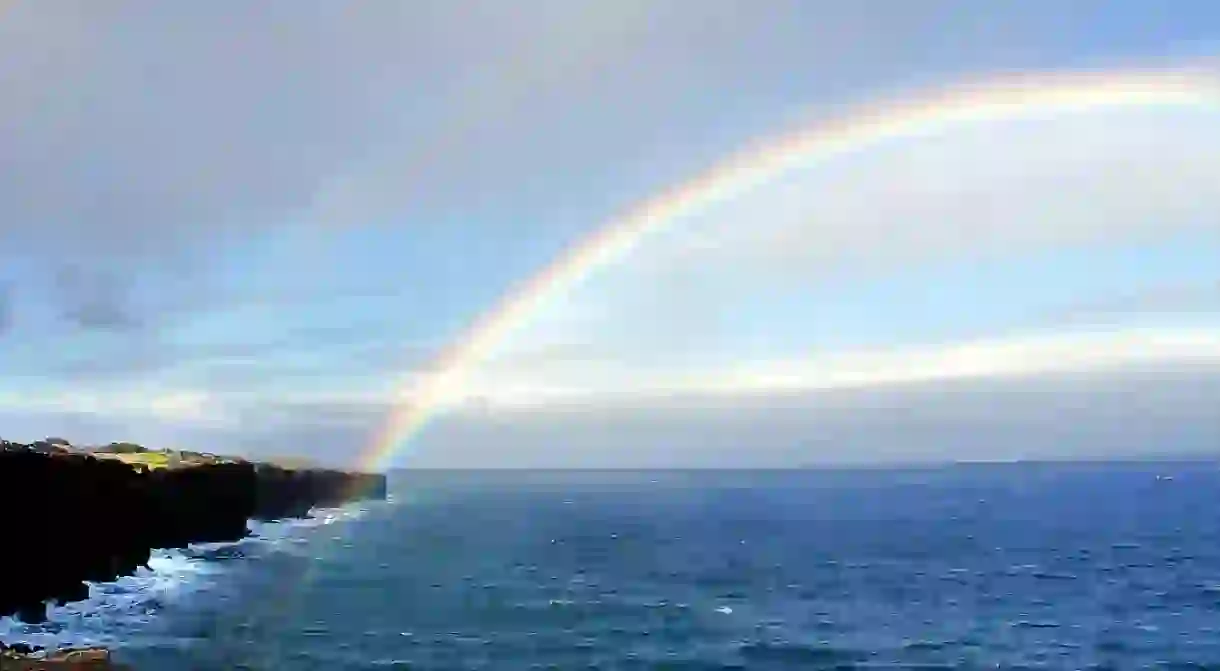Is Being Nice a Legal Requirement in Hawaii?

The Aloha Spirit is more than just a philosophy for Hawaiian natives.
Anyone who’s ever visited Hawaii knows the locals are some of the most laid-back, friendliest people you’ll ever meet. Produce vendors will slip you an extra treat; bartenders will mix you something special that’s not on the menu; surfers will let you in on where to catch the best waves. The Hawaiian sense of inclusion and welcoming nature is something unique and spectacular. But are the residents just acting that way because it’s the law?

In Hawaii, “Aloha” is a greeting that means both “hello” and “goodbye.” The Aloha Spirit, though, means so much more. Aside from the salutations, Aloha translates to “What’s mine is yours, unconditional love,” and in 1986 the Aloha Spirit Law was enacted. Its origin derives from a Maui elder named Pilahi Paki at the 1970 conference—Hawaii 2000—where the state’s residents discussed its past, present, and future. In her famed speech, Paki broke down each letter of “Aloha” into a singular phrase that emphasized the importance of being kind to one another:
Akahai, meaning kindness to be expressed with tenderness;
Lōkahi, meaning unity, to be expressed with harmony;
ʻOluʻolu, meaning agreeable, to be expressed with pleasantness;
Haʻahaʻa, meaning humility, to be expressed with modesty;
Ahonui, meaning patience, to be expressed with perseverance.
Though nearly impossible to enforce, the Aloha Spirit Law is a philosophy Hawaiians strive to live by; one that’s important to follow for a state that’s the most isolated population center in the world. The island chain’s closest neighbors are California, which is around 2,400 miles to the east, and Japan, which is 4,000 miles to the west.
Not even inter-island travel is easy, as there’s no bridges connecting them. Thus, it’s sort of like when seven roommates are sharing a three-bedroom apartment—you don’t want to get on each other’s nerves, because having beef with someone in such close proximity can make things awkward real quick.

Aloha Spirit may be mandatory for Hawaiian residents, but like so many other traditions of old, they embrace it openly (hell, people have been honoring Pele—the fire goddess—instead of diverting Kilauea’s lava flow). They treasure ‘Ohana, respect Mother Nature wholeheartedly, and find joy in helping visitors appreciate their beloved state. Maybe that’s why Hawaii is the number one destination people want to visit before they die. That and the excellent food, breathtaking scenery and vibrant culture.













